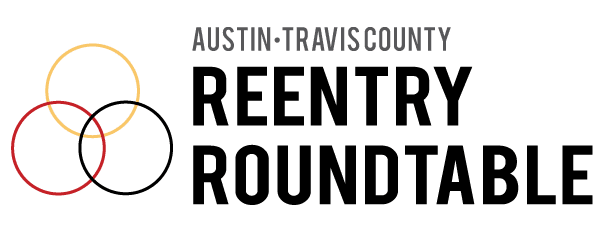Helen Gaebler, Past Chair, Austin/Travis County Reentry Roundtable Planning Council
Senior Research Attorney, William Wayne Justice Center for Public Interest Law, UT School of Law
Tell me about your professional background.
I grew up in Wisconsin and attended law school there. After graduating and clerking for a year at the Wisconsin Supreme Court, I spent almost a decade practicing law in Washington, D.C., first in private practice and later with the U.S. Department of Justice. My husband and I then moved to Tucson, Arizona where we lived for 8 years. There I focused on child abuse and neglect work, working as an Assistant Attorney General in the Child and Family Protection Division. After spending 5 years in that position, however, it didn’t seem like a terribly effective way to bring about positive change. And so I left my legal practice to become Assistant Director for Community Outreach at the Frances McClelland Institute for Children, Youth and Families, a new research center at the University of Arizona. I taught family law and directed the Institute’s community outreach efforts, building bridges between the legal community and the university around issues involving youth and families. My family moved to Austin in 2009.
What do you do in your position at the UT Law School?
I started in my current position as Senior Research Attorney for the William Wayne Justice Center at The University of Texas School of Law in 2010. The Justice Center was created in 2004 in honor of Judge Justice, a much respected federal district judge from East Texas who was appointed by President Johnson. The Justice Center serves as a resource for students, faculty, alumni, and the community, promoting equal justice for all through legal education, scholarship, and public service. I focus mostly on research and policy projects, working with students and community organizations across a range of issues, including child welfare, guardianship, fair housing, and reentry and criminal justice reform.
How did you get interested in criminal justice and reentry issues?
Although part of my undergraduate work involved criminal justice studies, I never practiced criminal law and I did not work on criminal justice issues until fairly recently. I became interested in reentry three years ago when I was asked to undertake a project focusing on criminal records and background checks. It was while working on my report “Criminal Records in the Digital Age” that I first learned about the Roundtable, and reentry has remained a focus for my work ever since. In fact, the Justice Center has continued to expand its commitment to reentry-related work over the past three years with the launching of a pro bono expunction law clinic, which now serves just under 100 clients each semester.
What is your vision for the future of reentry in Texas and Travis County?
Building alliances is critical in a large state like Texas. There is also a lot of work that needs to be done to shift the narrative of what we mean by “public safety.” Concerns about public safety drive much of the debate around reentry in Texas and nationally but there has been almost no serious inquiry into what that means in terms of actual numbers or data.
What is a key reentry policy that you’d like to focus on?
Banning or at least limiting the bulk sale of criminal records is key to reducing the downstream consequences that flow from relying on large internet-based databases to perform background checks. Increasing access to housing also is critical, especially for community members who are burdened with a criminal record and cannot find a place to live, regardless of ability to pay.
What is your hope for the future of the Reentry Roundtable?
My hope is for the Roundtable to play an increasingly visible role in the conversation around public safety and to serve as a resource for policy makers and community members alike. With the many experts who serve on our Planning Council or participate with the Reentry Advocacy Project, the Roundtable is in an excellent position to promote an open conversation on issues that affect the entire community.
Interview conducted by Lauren Johnson, Advocacy Fellow

